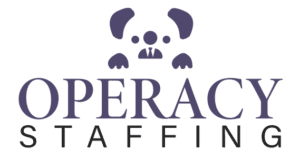
Introduction
Remote staffing has not only revolutionised the way businesses operate but also brings significant tax advantages that can positively impact an organization or company's financial health. Employing remote workers can unlock various benefits, including cost savings, deductions, and incentives. In this article, we delve into the tax advantages of remote staffing and explore how businesses can optimise and manage their tax strategies to maximise financial benefits. By understanding the tax implications of remote staffing, businesses can make informed decisions and leverage these advantages to bolster their financial position.
Remote staffing has gained immense popularity in recent years, driven by advancements in technology, changing work dynamics, and the global pandemic. It offers businesses the opportunity to tap into a vast talent pool regardless of geographical boundaries, resulting in increased access to highly skilled professionals. Alongside the operational advantages, remote staffing presents a company with unique tax benefits that can significantly impact a company's bottom line. By understanding and harnessing these advantages, businesses can not only optimise their financial resources but also gain a competitive edge in the ever-evolving various services market.
Cost Savings
One example of the prominent tax benefits of remote staffing lies in cost savings. By embracing a remote workforce, businesses can reduce expenses associated with maintaining physical office spaces, and costs such as rent, utilities, and maintenance. These cost savings directly translate into reduced taxable income, allowing organisations to allocate resources more efficiently. Additionally, remote staffing enables businesses to tap into talent pools from regions with lower wage expectations, optimising labour costs and minimising payroll taxes. These cumulative cost savings contribute to improved financial health and enhanced competitiveness in the market. By analysing and quantifying the potential cost savings, businesses can make informed decisions about their staffing models and strategically allocate resources.
Deductions and Tax Planning
Remote staffing services can also offer businesses various deductions that can significantly reduce their tax liability. Expenses directly related to remote work, such as home office equipment, internet connectivity, and communication tools, are often deductible. The Internal Revenue Service (IRS) provides guidelines determining eligible deductions, enabling businesses to claim a portion of these expenses on their tax returns. It is essential for organisations to maintain proper documentation and accurately allocate expenses to ensure compliance with tax regulations and maximise deductions. Consulting with a tax professional can provide valuable guidance in the process of identifying eligible deductions and optimising tax benefits. Furthermore, proactive tax planning is crucial for remote staffing arrangements. Businesses should consider factors such as state and local tax regulations, international tax implications, and potential tax treaties to maximise savings and minimise tax exposure. Regular review and adjustment of tax strategies can ensure ongoing compliance and take advantage of any changes in tax laws.
Incentives and Tax Credits
Certain jurisdictions and government bodies offer incentives and tax credits to businesses that employ remote workers. These incentives aim to promote economic growth, regional development, innovation, and job creation. For instance, some countries provide tax breaks or reduced tax rates for companies that establish remote work arrangements in specific regions or industries. Governments may also offer tax credits for hiring individuals from underrepresented groups or providing training and skill development opportunities. By staying informed about available incentives and tax credits, businesses can leverage these programs to reduce tax burdens and foster mutually beneficial partnerships with local authorities. Collaboration with economic development agencies and tax authorities can provide companies with valuable insights into available incentives and credits.
Tax Strategies for Remote Staffing
To maximise the tax benefits of remote staffing fully, organisations can employ various tax strategies tailored to their specific circumstances. First, engaging a qualified tax advisor or consultant can provide clients with valuable expertise in navigating complex tax regulations, identifying eligible deductions, and optimising tax planning strategies. Additionally, implementing proper documentation and record-keeping systems is crucial to substantiate eligible expenses and support accurate tax reporting. Maintaining a clear separate between personal income and business expenses is essential to ensure compliance and avoid potential tax audits. Finally, regularly reviewing and adjusting tax strategies in response to changing tax laws and regulations can help businesses stay proactive and take full advantage of available tax benefits.
Conclusion
In an ever-evolving business landscape, remote staffing has proven to be a game-changer, providing organisations with the agility and adaptability needed to thrive. By embracing a remote workforce, businesses can not only tap into a global talent pool but also unlock significant tax advantages and investments that contribute to their financial health. The cost savings, deductions, incentives, investments, and tax credits associated with remote staffing can create a substantial impact on a company's bottom line and overall competitiveness.
To fully capitalise on the tax advantages of remote staffing, businesses should prioritise proactive tax planning, staying informed about tax regulations, and collaborating with tax professionals. Regular review and adjustment of tax strategies, coupled with an understanding of the available incentives and credits, can ensure ongoing compliance and maximise tax benefits. By aligning remote staffing with tax planning, businesses can optimise their financial resources, gain a competitive edge, and position themselves for long-term success, innovation and growth.
As the business landscape continues to evolve and remote work becomes more prevalent, understanding the tax advantages of remote staffing is crucial for businesses to thrive in this new era. By embracing the opportunities presented by remote staffing, organisations can harness the power of technology, access top talent, and reap the financial benefits that come with it. The synergy between remote staffing and tax optimization offers a winning combination that can propel businesses forward and lay the foundation for a prosperous future. By strategically leveraging the value of remote staffing and its accompanying tax advantages, organisations can adapt, innovate, and thrive in an increasingly interconnected and dynamic global marketplace.
